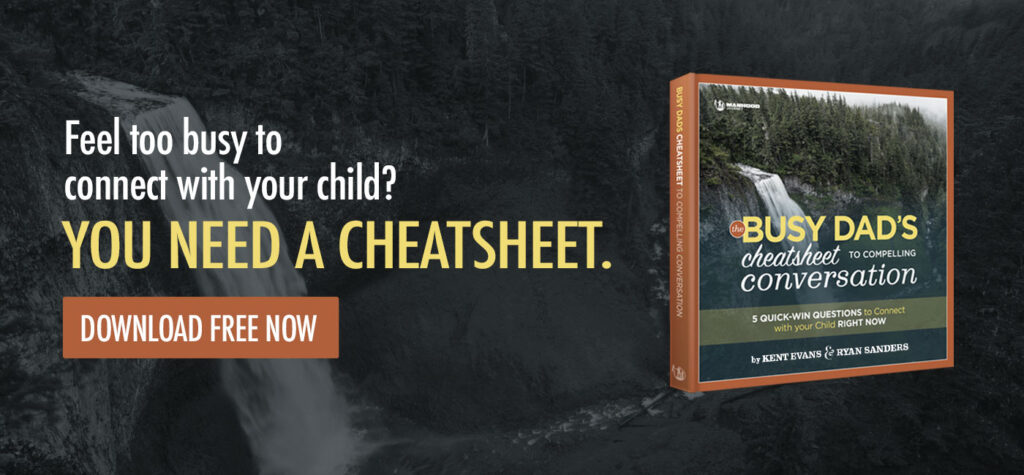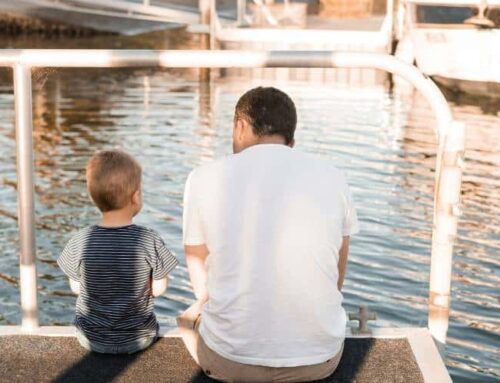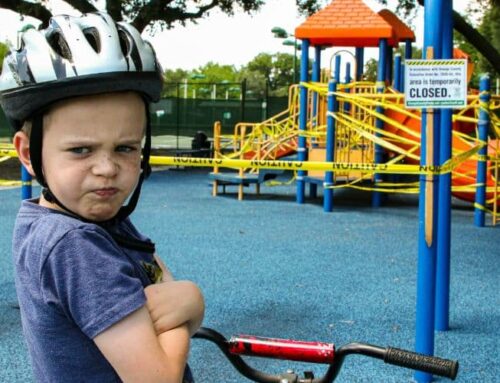Do you really know how to talk to children about culture? We live in a culture that is increasingly hostile to our beliefs. It’s inevitable that our kids get exposed to this culture, so how do we respond? In this post special guest, Jon McCallon breaks down how to raise kids that not just survive in our culture, but conquer it!
“Now while Paul was waiting for them at Athens, his spirit was provoked within him as he saw that the city was full of idols. 17 So he reasoned in the synagogue with the Jews and the devout persons, and in the marketplace every day with those who happened to be there. 18 Some of the Epicurean and Stoic philosophers also conversed with him. And some said, “What does this babbler wish to say?” Others said, “He seems to be a preacher of foreign divinities”—because he was preaching Jesus and the resurrection. 19 And they took him and brought him to the Areopagus, saying, “May we know what this new teaching is that you are presenting? 20 For you bring some strange things to our ears. We wish to know therefore what these things mean.” 21 Now all the Athenians and the foreigners who lived there would spend their time in nothing except telling or hearing something new.” —Acts 17:16-21
How to talk to children so they conquer culture.
Jon McCallon is one of my favorite people at our church. He’s a pastor at Southeast Christian Church. But, if you know him really well you call him Johnny Mac. I’ve known him for over a decade. We’ve done a lot of fun things together. We took a road trip together once. You should hear about that one time! Please welcome my good friend Johnny Mac…

About Jonny Mac
Jon McCallon has been married to Dustye for 20 years. He’s one of the pastors at Southeast Christian. He’s also the director of HubStudent.com a small-group curriculum that teaches the lesson so the leader can lead the conversation. He lives in Louisville, Kentucky.
How to talk to children: do your kids ever collide with culture?
Have you ever had a moment in culture when you just collided with it and you didn’t know what to do?
I took my daughters to see a Star Wars film recently and I had a moment in the theater where I just kind of second-guessed everything as a parent. We had a collision with the culture that day that was really funny.
We’re watching the movie and Star Wars—we love it—we geek out about it all the time in my family and there was a moment the movie where the stormtroopers threw a grenade and it blew up a lot of stuff and then the room goes quiet.
Now, this is a packed theater and I’m sitting next to my 5-year-old at the time and something happened. Well, it always happens, really, she opened her mouth and she said decided to speak—except she spoke when everybody was silent and they can hear.
So, the grenade goes off…then…all of a sudden it cuts in the next scene…goes quiet…and out of your mouth she says this, “I want one of those!” She was talking about a grenade. Suddenly, I kind of distance myself from my daughter wondering, “Who’s kid is this?” My daughter wants explosives for Christmas. And I had this collision with culture. Did I make the wrong call by bringing her to the theater that day?
Now, that’s a pretty silly incident. But, you know and I know—every single day—our kids and our families are having collisions with culture. And, maybe it’s not in the theater. Maybe it’s
- on YouTube or
- on social media or
- maybe it’s in their school or
- maybe it’s on the school bus or
- maybe it’s inside your house
When the collision happens.
When you have these collisions with culture the question is—how do you handle it? Do you just retreat and put walls up and not talk about it? Or, do you just say “anything goes” and “go for it: and just say “we’ll figure it out as they grow up”?
We can actually look to Scripture to see how we can handle these cultural collisions. There’s a guy named Paul in the Bible and Paul knows everything about culture because when he went and did his Kingdom work, he did it in a place weren’t a lot of people who believed what he believed.
We can see in the Book of Acts 17 he has a collision with culture. I want to read what happens. He says this in verse 16, while Paul was waiting for them in Athens he was deeply troubled by all the idols he saw in the city. He comes to this place. He sees all these things that are not anything that he wants to be part of. So, what’s his response? He goes to the synagogue to reason with the Jews and the God-fearing gentiles he spoke daily in the public square with all who happened to be there.
Paul doesn’t retreat. He actually starts talking about what he’s seeing there. It continues on in verse 19, they took him to the high council in the city and they said this, come tell us about this new teaching you’re saying some rather strange things that should be explained, that all the Athenians, as well as the foreigners Athens, seemed to spend all their time discussing the latest ideas.
So, Paul’s response models the way for us. He doesn’t just act like it didn’t happen he doesn’t just let it go. He actually talks about what he saw and anchors it back to truth.
What you do as a dad is vital.
When we have a culture collision, we don’t have to retreat from it. We can talk about it. One of the best things we can do with our kids is to talk about what they just saw, what they just heard, and break it down and have a conversation about it—instead of just retreating and saying—let’s not have anything to do with that.
You as a dad, you certainly need to set up boundaries for your kids. You need to put up the fences and let them know where they should and shouldn’t be. We need to be ready for those moments when we collide with things that are outside of those boundaries.
Instead of acting like they didn’t happen or just ignoring them, what would happen if we actually talked about it? What if we had a discussion about what we just encountered? What if you broke it down and debriefed it with our kids so that we could talk about what that is all about and what our faith is all about?
See when we do those kinds of discussions—when we have those conversations what we’re doing is we’re helping our kids realize how to process and filter culture as it comes at them. So, that day comes when they’re out of your house, they will know what to do with culture collisions. How are you going to respond? Are you going to retreat? Are you going to let it go? Where are you gonna start the conversation?
Your mission for how to talk to children so they conquer culture.
I love how Jon addresses this idea of culture collision. We have three choices:
- We can act like an ostrich and put our heads in the sand.
- We can overreact. Or…
- We can engage and create a conversation
I love those ideas because, as parents, you know we want to shield our kids to a certain degree from negative cultural influences. But, we also want to send them out as warriors and messengers into the culture.
So, we’ve got to figure this out because we live in a culture that will continually challenge our belief system. And, our kids have to be ready. So, here’s your mission, I want you to find something in culture where you can engage with your children. Now, I know, if your children are six years old or 16 years old this is going to take very different forms based on their age.
But, can you find something—maybe it’s on TV, maybe it’s on Spotify, maybe it’s on YouTube or you can watch something with your kids or engage in the culture in a way where you can then have a conversation—and help them process and breakdown what happened. You can draw out their thoughts about what’s going on in the culture around them.
More resources for how to talk to children
Here are four ways we can help you become the leader God calls you to be.
- Read the post: 10 essential books on how to be a godly husband and father
- Snag a $5 eBook to download right now and conquer your most-pressing challenge.
- Get the extra help you need for leading, communicating, and discipling your kids. You can lead in your home without regret.
- Find the tools you need to lead your son or a small group of dads and sons?













